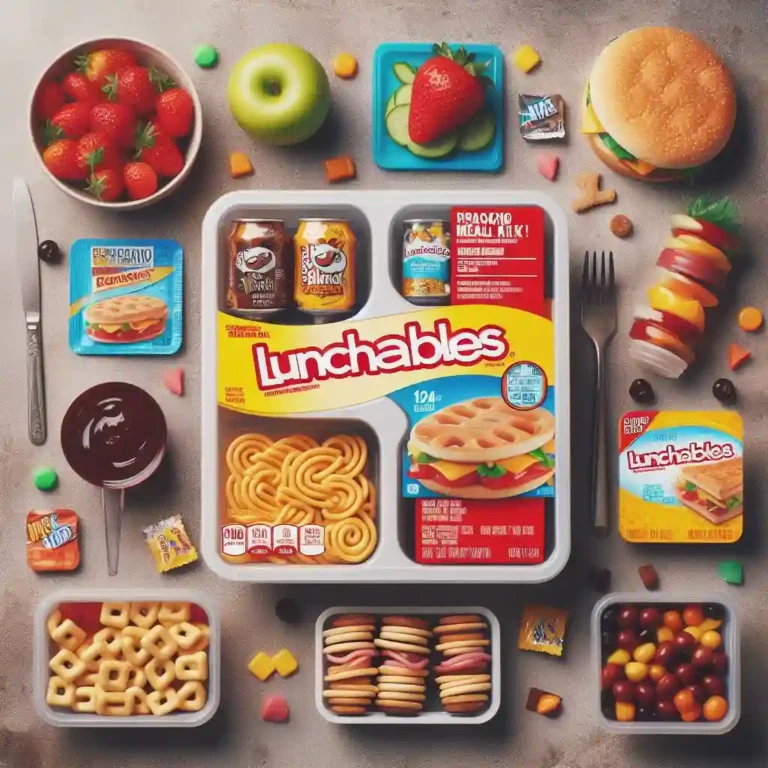How Long Can Pancakes Sit Out Before Spoiling? (Explained)
Fluffy, golden-brown pancakes – the perfect breakfast treat. But what happens when you’ve cooked up a batch and can’t devour them all in one sitting? Whether you’re a busy bee on-the-go or a meal prep master, it’s essential to know how long cooked pancakes can safely sit out at room temperature.
The answer might surprise you: it’s not as long as you think. In this article, we’ll dive into the world of pancake perishability, exploring the risks of foodborne illness, the role of storage and handling, and the all-important timeline for consuming your leftover pancakes before they spoil.
How Long Can Pancakes Sit Out Before They Go Bad? Quick Guide
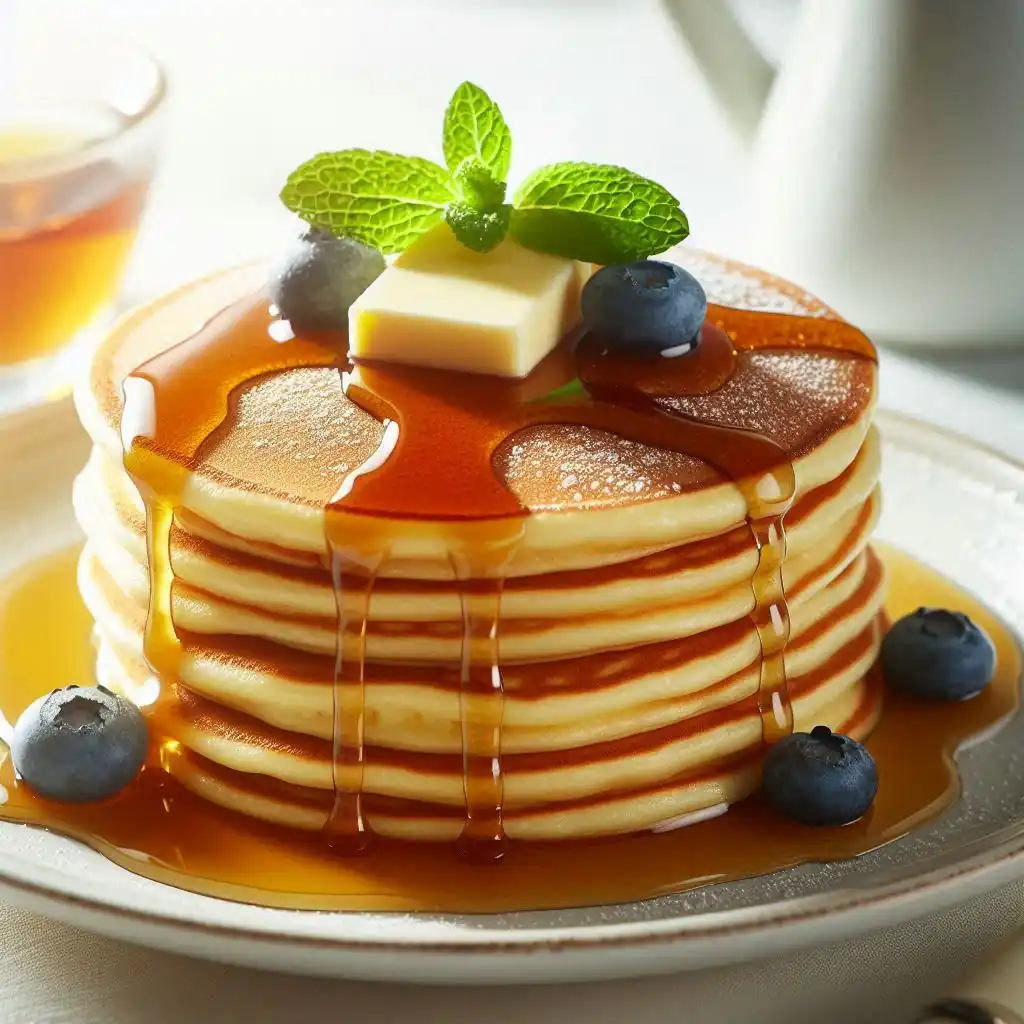
Room Temperature (68°F – 72°F / 20°C – 22°C)
- 2 hours: Maximum time for cooked pancakes to sit out at room temperature before they enter the “danger zone” (40°F – 140°F / 4°C – 60°C) where bacteria grow rapidly.
- 1 hour: Recommended time for cooked pancakes to sit out at room temperature before refrigeration or freezing to prevent bacterial growth.
Refrigeration (40°F / 4°C)
- 3 to 5 days: Cooked pancakes can be safely stored in the refrigerator for 3 to 5 days.
- 2 hours: Cooked pancakes should be refrigerated within 2 hours of cooking to prevent bacterial growth.
Freezing (-18°C / 0°F)
- 3 to 4 months: Cooked pancakes can be safely frozen for 3 to 4 months.
- When reheating, ensure pancakes reach an internal temperature of 165°F (74°C) to ensure food safety.
Signs of Spoilage
- Slime or mold on the surface
- Slimy or soft texture
- Unpleasant odor or sour smell
- Sluggish or dry appearance
Remember, even if pancakes are stored properly, they can still spoil if not consumed within a reasonable timeframe. Always prioritize food safety and use your best judgment when consuming leftovers.
Pancake Perishability: The Shelf Life of Cooked Pancakes

Factors Affecting Shelf Life
Several factors can influence the shelf life of cooked pancakes, including:
- Temperature: Cooked pancakes should be stored at a safe temperature to prevent bacterial growth. This means keeping them refrigerated at 40°F (4°C) or below, or frozen at 0°F (-18°C) or below.
- Storage: How you store cooked pancakes can greatly impact their shelf life. Improper storage, such as leaving them at room temperature for too long, can cause them to spoil quickly.
- Handling: The way you handle cooked pancakes can also affect their shelf life. For example, if you touch them with unwashed hands or use utensils that haven’t been properly sanitized, you can introduce bacteria that can cause spoilage.
- Ingredients: The ingredients used to make the pancakes can also impact their shelf life. For example, pancakes made with dairy products or eggs may spoil more quickly than those made with alternative ingredients.
How Long Can Cooked Pancakes Sit Out at Room Temperature?
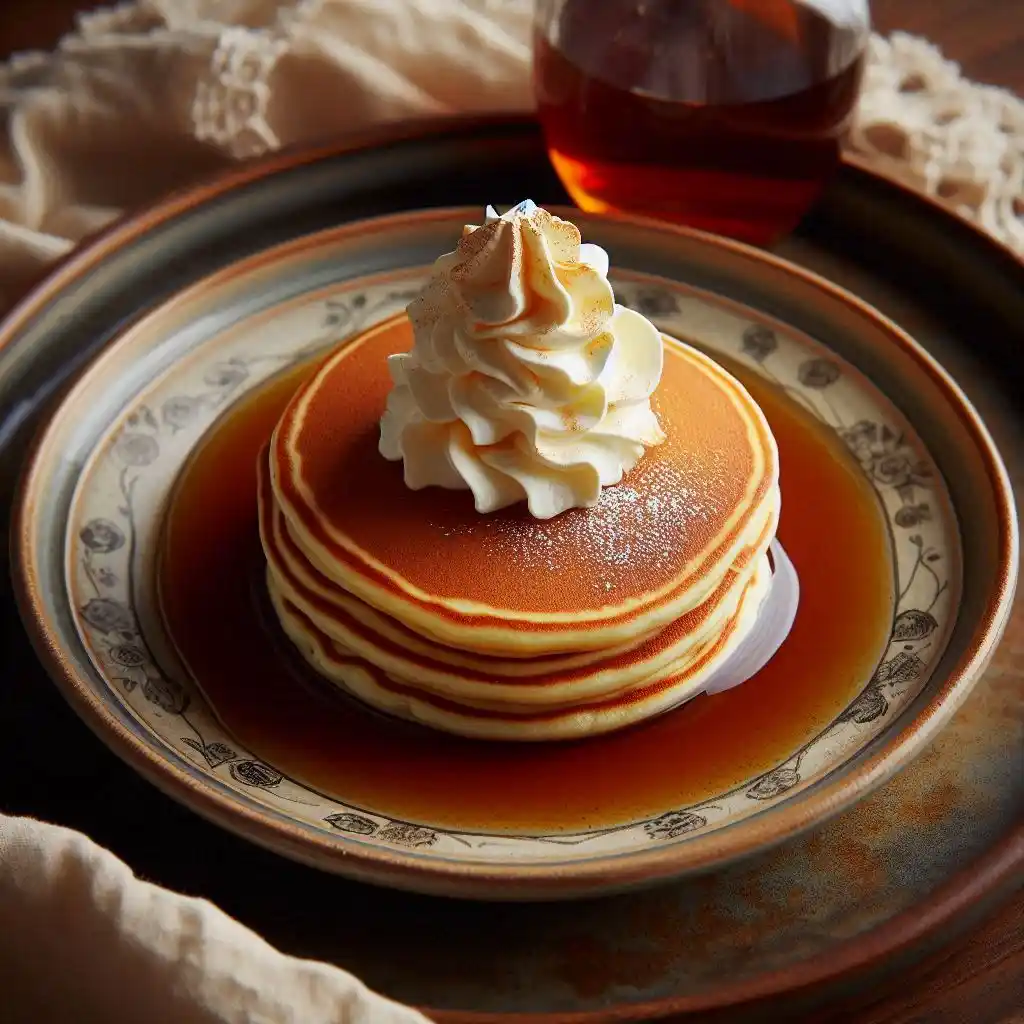
The 2-Hour Rule
According to food safety guidelines, cooked pancakes should not sit out at room temperature for more than 2 hours. This is because bacteria can multiply rapidly between 40°F (4°C) and 140°F (60°C), which is known as the “danger zone.”
The 1-Hour Rule
To be even safer, it’s recommended to refrigerate or freeze cooked pancakes within 1 hour of cooking. This reduces the risk of bacterial growth and foodborne illness.
What Happens After 2 Hours?
If cooked pancakes sit out at room temperature for more than 2 hours, the risk of bacterial growth increases. This can lead to foodborne illness, especially for vulnerable populations like the elderly, young children, and people with weakened immune systems.
Best Practices
To ensure food safety, follow these best practices:
- Cook pancakes just before serving, or refrigerate/freeze them immediately after cooking.
- Use shallow containers to cool cooked pancakes quickly and evenly.
- Label and date leftovers, and consume them within 3 to 5 days of refrigeration or 3 to 4 months of freezing.
The Role of Storage and Handling in Pancake Safety
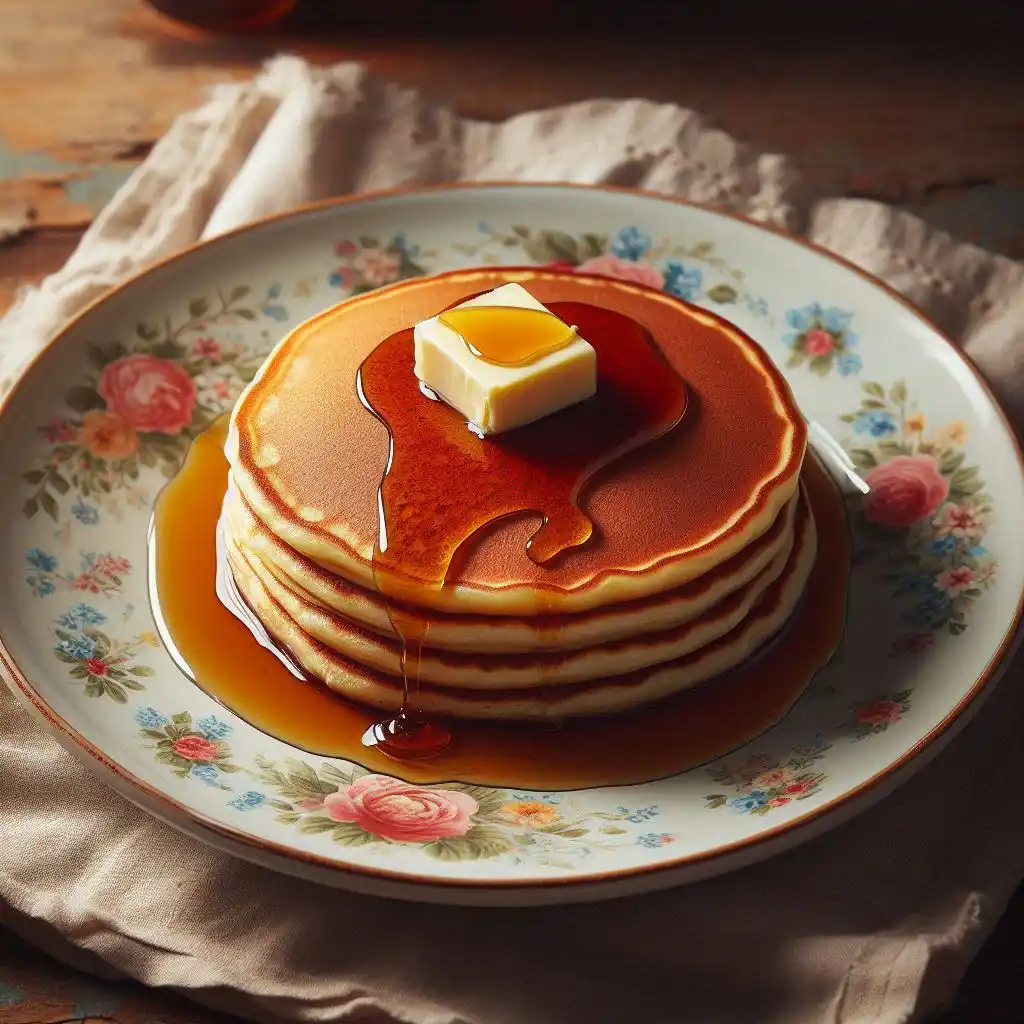
Proper storage and handling are crucial in maintaining the safety and quality of cooked pancakes. Whether you’re storing them in the refrigerator, freezer, or at room temperature, it’s essential to follow safe storage and handling practices to prevent contamination and spoilage.
Refrigeration
When storing cooked pancakes in the refrigerator, make sure to:
- Cool them to room temperature within 2 hours of cooking
- Place them in a covered, shallow container to prevent moisture accumulation
- Label and date the container to ensure you use the oldest pancakes first
- Store them at a consistent refrigerator temperature of 40°F (4°C) or below
- Consume them within 3 to 5 days of refrigeration
Freezing
When freezing cooked pancakes, follow these guidelines:
- Cool them to room temperature within 2 hours of cooking
- Place them in airtight, freezer-safe containers or freezer bags to prevent freezer burn
- Label and date the containers or bags to ensure you use the oldest pancakes first
- Store them at 0°F (-18°C) or below
- Consume them within 3 to 4 months of freezing
Room Temperature
When storing cooked pancakes at room temperature, remember:
- Cooked pancakes should not sit out at room temperature for more than 2 hours
- Use shallow containers to cool cooked pancakes quickly and evenly
- Label and date the containers to ensure you use the oldest pancakes first
- Consume them within 1 hour of cooking, or refrigerate/freeze them immediately
Handling
Proper handling is also crucial in maintaining pancake safety. Always:
- Wash your hands thoroughly before and after handling cooked pancakes
- Use clean utensils and equipment to handle and store cooked pancakes
- Avoid cross-contamination by separating raw ingredients from cooked pancakes
- Prevent moisture accumulation by storing cooked pancakes in well-ventilated areas
Refrigeration 101: How to Store Cooked Pancakes Safely
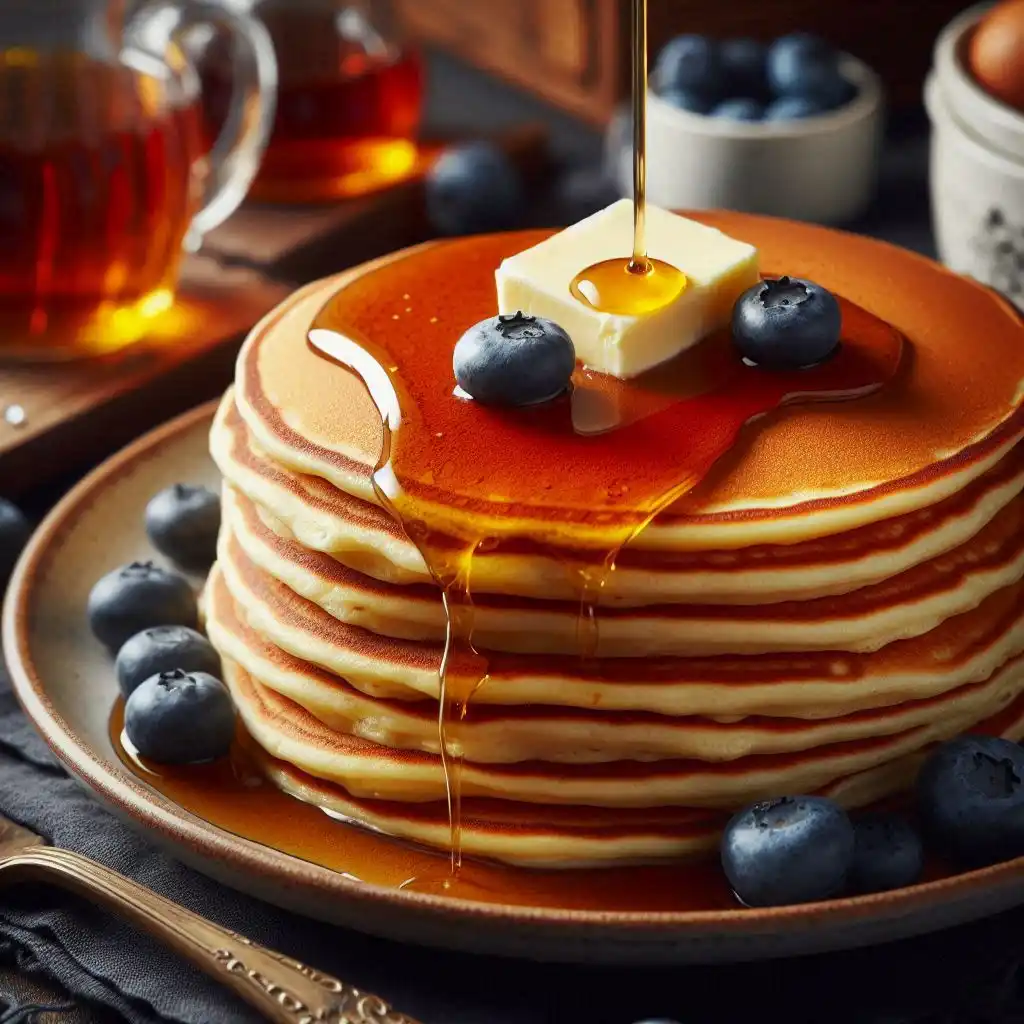
Refrigeration is a great way to store cooked pancakes, but it’s essential to do it safely to prevent bacterial growth and foodborne illness. Here are some tips to help you store cooked pancakes safely in the refrigerator:
Cooling Down
Before refrigerating cooked pancakes, make sure they have cooled down to room temperature. This is an important step, as refrigerating hot pancakes can lead to bacterial growth.
Container Selection
Choose a shallow, covered container that is large enough to hold the pancakes in a single layer. This will help prevent moisture accumulation and promote air circulation.
Container Preparation
Before placing the pancakes in the container, make sure it’s clean and sanitized. You can wash the container with soap and warm water, and then sanitize it with a solution of 1 tablespoon of unscented chlorine bleach in 1 gallon of water.
Pancake Arrangement
Place the cooked pancakes in a single layer in the container, making sure they don’t touch each other. This will help prevent moisture accumulation and promote air circulation.
Labeling and Dating
Label the container with the date and contents, and make sure to use the “first in, first out” rule to ensure that the oldest pancakes are consumed first.
Refrigeration Temperature
Store the container in the refrigerator at a consistent temperature of 40°F (4°C) or below.
Storage Time
Cooked pancakes can be safely stored in the refrigerator for 3 to 5 days. Make sure to consume them within this timeframe to prevent spoilage and foodborne illness.
Tips and Reminders
- Always check the pancakes for signs of spoilage before consuming them, such as an off smell or slimy texture.
- If you’re unsure whether the pancakes are still safe to eat, it’s better to err on the side of caution and discard them.
- When reheating cooked pancakes, make sure they reach an internal temperature of 165°F (74°C) to ensure food safety.
Freezing Cooked Pancakes: A Guide to Long-Term Storage
Freezing is a convenient way to store cooked pancakes for a longer period. Here are some key points to keep in mind when freezing cooked pancakes:
Freezer Burn Prevention
To prevent freezer burn, make sure to remove as much air as possible from the container or bag before sealing. You can also use a vacuum sealer or the displacement method to remove air.
Container Selection
Choose airtight, freezer-safe containers or bags that are specifically designed for freezing. Avoid using glass containers, as they can break or shatter in the freezer.
Pancake Portioning
Portion out individual servings of cooked pancakes before freezing to make it easier to thaw and reheat only what you need.
Freezer Organization
Organize your freezer by storing cooked pancakes in a designated area, such as a freezer bin or basket. This will help you quickly find what you need and prevent a cluttered freezer.
Freezer Inventory
Keep an inventory of the cooked pancakes you have in the freezer, including the date they were frozen and the contents of each container or bag. This will help you keep track of what you have and ensure that you use the oldest pancakes first.
Thawing and Reheating
When you’re ready to consume the frozen pancakes, simply thaw them overnight in the refrigerator or thaw them quickly by submerging the container in cold water. Once thawed, reheat the pancakes to an internal temperature of 165°F (74°C) to ensure food safety.
Signs of Spoilage: How to Tell If Your Pancakes Have Gone Bad
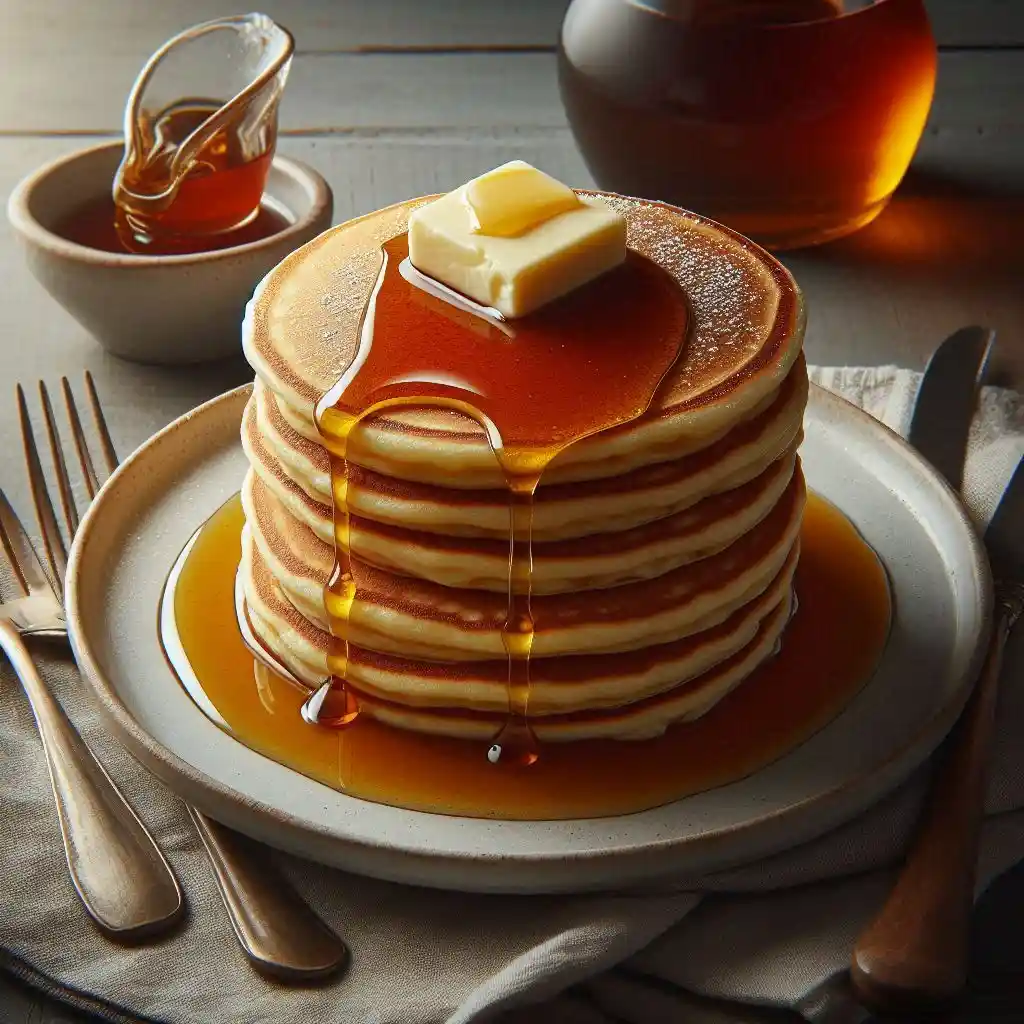
Even with proper storage and handling, cooked pancakes can still spoil if not consumed within a reasonable timeframe. Here are some common signs of spoilage to look out for:
Slimy or Soft Texture
If your pancakes have a slimy or soft texture, it’s a sign that they’ve gone bad. Freshly cooked pancakes should have a firm, fluffy texture.
Unpleasant Odor
If your pancakes have a strong, unpleasant odor, it’s a sign of spoilage. Freshly cooked pancakes should have a neutral or slightly sweet aroma.
Mold or Slime
Check your pancakes for visible signs of mold or slime. If you notice any, it’s a sign that they’ve gone bad.
Slimy or Stale Taste
If your pancakes taste slimy or stale, it’s a sign that they’ve gone bad. Freshly cooked pancakes should have a light, fluffy texture and a slightly sweet taste.
Color Changes
If your pancakes have changed color, it could be a sign of spoilage. Freshly cooked pancakes should be a light golden brown color. If they’ve turned grayish or greenish, it’s a sign that they’ve gone bad.
Storage Time
If you’ve stored your pancakes for too long, they may have gone bad. Check the storage time and make sure you’re consuming them within a reasonable timeframe.
Other Signs
Other signs of spoilage may include:
- Pancakes that are past their expiration date
- Pancakes that have been stored at room temperature for too long
- Pancakes that have been contaminated with bacteria or other microorganisms
Pancake Safety Tips: Best Practices for Handling and Storage
To ensure the safety and quality of your pancakes, follow these best practices for handling and storage:
Handling
- Always wash your hands before and after handling pancakes.
- Use clean utensils and equipment to handle pancakes.
- Avoid cross-contamination by separating raw ingredients from cooked pancakes.
- Prevent moisture accumulation by storing pancakes in well-ventilated areas.
Storage
- Store cooked pancakes in airtight, shallow containers to prevent moisture accumulation.
- Label and date containers to ensure you use the oldest pancakes first.
- Store containers in the refrigerator at a consistent temperature of 40°F (4°C) or below.
- Freeze cooked pancakes if you won’t be consuming them within 3 to 5 days.
Reheating
- Reheat cooked pancakes to an internal temperature of 165°F (74°C) to ensure food safety.
- Use a food thermometer to ensure the pancakes have reached a safe temperature.
- Avoid reheating pancakes multiple times, as this can lead to bacterial growth.
Defrosting
- Defrost frozen pancakes in the refrigerator or by leaving them at room temperature for a short period.
- Avoid defrosting pancakes at room temperature for too long, as this can lead to bacterial growth.
Leftovers
- Consume leftover pancakes within 3 to 5 days of cooking.
- Store leftover pancakes in airtight containers and refrigerate at a consistent temperature of 40°F (4°C) or below.
FAQs
Q: How long can cooked pancakes sit out at room temperature?
A: Cooked pancakes should not sit out at room temperature for more than 2 hours. After 2 hours, the risk of bacterial growth increases, and the pancakes may spoil.
Q: Can I store cooked pancakes in airtight containers at room temperature?
A: No, it’s not recommended to store cooked pancakes in airtight containers at room temperature. This can lead to moisture accumulation and bacterial growth.
Q: How long can I store cooked pancakes in the refrigerator?
A: Cooked pancakes can be safely stored in the refrigerator for 3 to 5 days.
Q: Can I freeze cooked pancakes?
A: Yes, cooked pancakes can be frozen for up to 3 to 4 months. Make sure to store them in airtight, freezer-safe containers or bags.
Q: How do I reheat frozen pancakes?
A: Reheat frozen pancakes in the microwave or oven until they reach an internal temperature of 165°F (74°C).
Q: Can I reheat cooked pancakes multiple times?
A: No, it’s not recommended to reheat cooked pancakes multiple times. This can lead to bacterial growth and foodborne illness.
Q: How can I tell if my pancakes have gone bad?
A: Check your pancakes for signs of spoilage, such as an off smell, slimy texture, or mold growth. If you notice any of these signs, it’s best to err on the side of caution and discard the pancakes.

DK Jacks is a passionate food enthusiast, recipe developer, and culinary explorer. With a love for both traditional and innovative flavors, DK brings a fresh perspective to the kitchen. When not experimenting with new ingredients, you’ll find DK capturing food moments through the lens or sharing cooking tips with fellow foodies.🍽️📸✨


